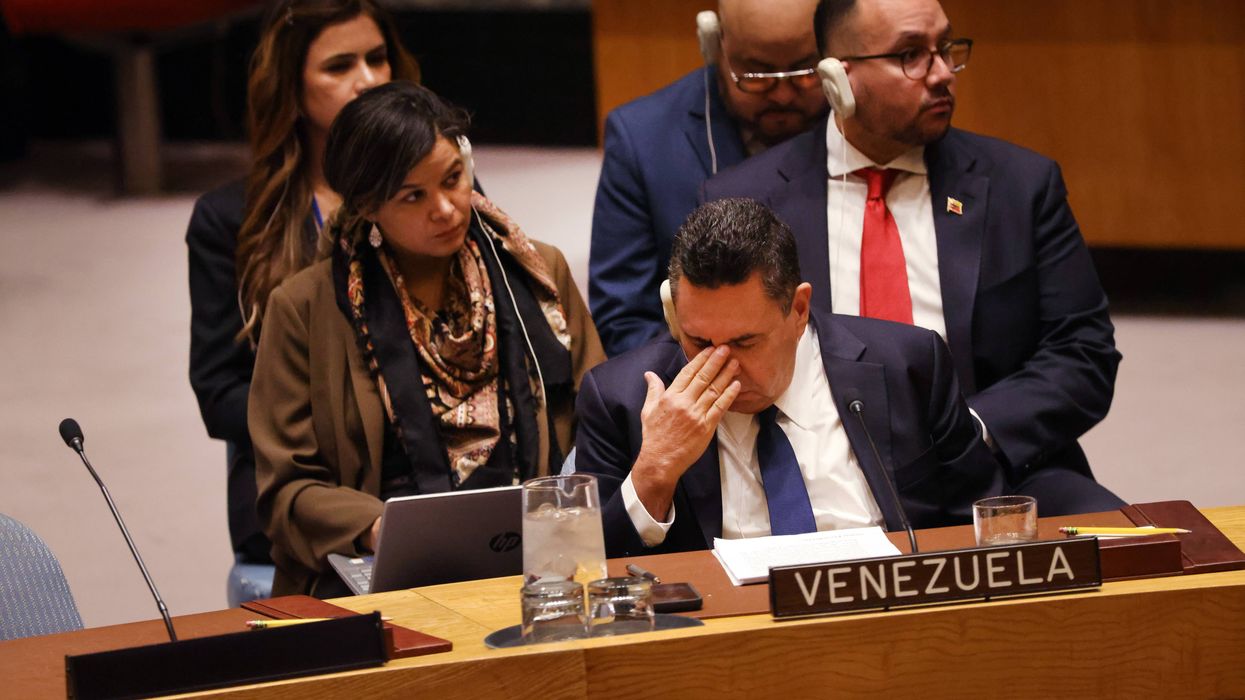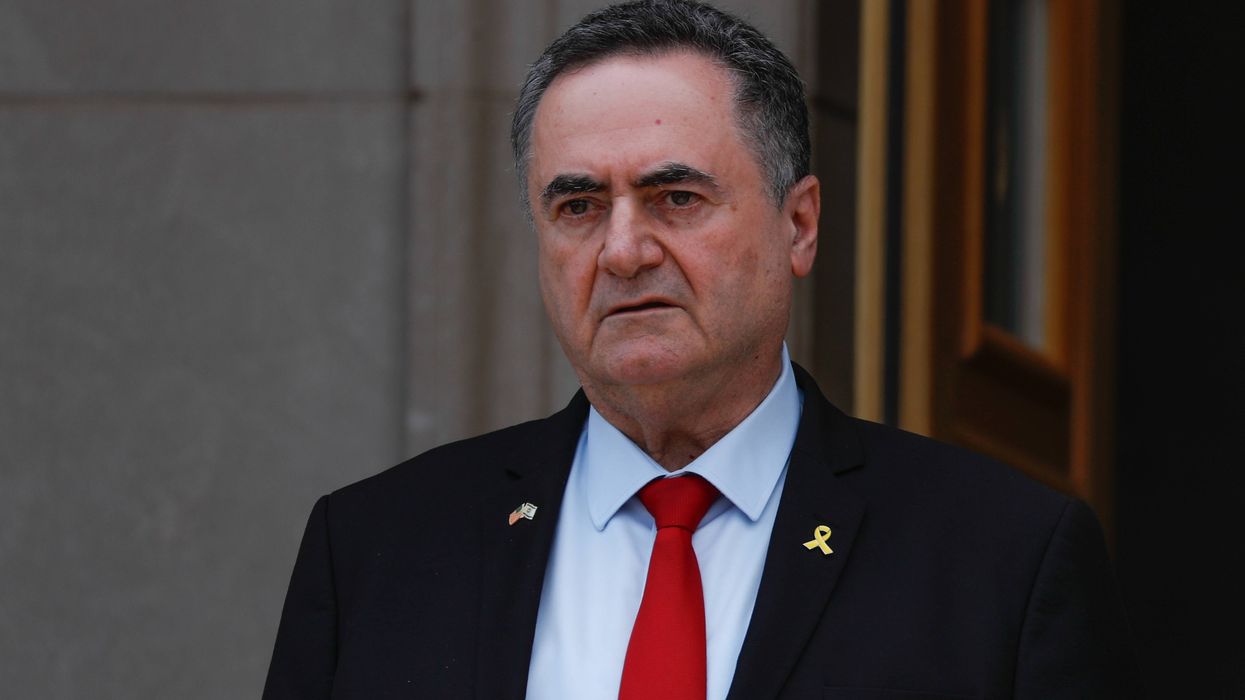March, 26 2012, 07:37am EDT

NATO: Clarify Response to Deaths at Sea
On Anniversary of Migrant Deaths, Public Disclosure Needed
Brussels
NATO and its member states should provide information to help clarify the chain of events that led to the death of 63 boat migrants in the Mediterranean a year ago, a coalition of human rights groups said in joint letters to NATO and member states released today.
Letters requesting information were sent on March 26, 2012, to NATO's Maritime Command in Naples, Italy, as well as to the defense ministers of France, Great Britain, Italy, Spain, the United States, and Canada.
"The shocking loss of life in the Mediterranean in 2011 - the United Nations High Commissioner for Refugees estimates that at least 1500 people died attempting the crossing last year - demands concerted efforts to investigate as well as to prevent such tragedies in the future," the signatories urge in the letters.
The signatories are Human Rights Watch, the International Federation of Human Rights (FIDH), the Euro-African network Migreurop, the Euro-Mediterranean Human Rights Network (EMHRN), the coalition Boats 4 People, and the French organization Gisti. Member organizations of FIDH, Migreurop, and EMHRN signed the letters to France, Italy, Spain, and Canada.
The letters seek clarification of what presence and capacity NATO and its member states had in the maritime area when the tragic episode took place. The incident involved a disabled boat filled with migrants fleeing Libya which was left to drift for two weeks in the Mediterranean before finally landing back in Libya on April 10, 2011. The boat ran into trouble not long after its departure from Tripoli on the night between March 26 and March 27, 2011. Despite distress calls and sightings by survivors of a military helicopter and a warship, the boat received no help, leading to the deaths of 63 out of the 72 passengers of the boat, including 20 women and two babies.
NATO and France, Great Britain, Italy, Spain, the United States, and Canada all had warships patrolling NATO's Maritime Surveillance Area, to enforce the arms embargo on Libya, as of March 24, 2011, two days before the migrant boat left Tripoli. The letters ask them to provide detailed information about the patrol sectors of each ship and their response to two different distress alerts about the drifting boat.
In July 2011, Human Rights Watch sent letters to NATO and the defense ministers of France, Italy, Malta and the United States inquiring about the incident. To date no response has been received.
The Migration Committee of the Council of Europe's Parliamentary Assembly (PACE) is expected to make public on March 29, 2012, the findings of its inquiry into the tragedy and wider phenomenon of migrant deaths in the Mediterranean sea.
The full list of organizations who signed the letters:
Human Rights Watch
International Federation for Human Rights (FIDH)
Migreurop
Euro-Mediterranean Human Rights Network (EMHRN)
Gisti
Boats 4 People
Ligues des Droits de l'Homme (France)
Italian Council for Refugees (Italy)
Unione forense per la tutela dei diritti umani (Italy)
Ligues des droits et des libertes (Canada)
Acsur-Las Segovias (Spain)
Human Rights Watch is one of the world's leading independent organizations dedicated to defending and protecting human rights. By focusing international attention where human rights are violated, we give voice to the oppressed and hold oppressors accountable for their crimes. Our rigorous, objective investigations and strategic, targeted advocacy build intense pressure for action and raise the cost of human rights abuse. For 30 years, Human Rights Watch has worked tenaciously to lay the legal and moral groundwork for deep-rooted change and has fought to bring greater justice and security to people around the world.
LATEST NEWS
Trump Blockade of Venezuela, Murders on High Seas Violate International Law: UN Experts
"The illegal use of force, and threats to use further force at sea and on land, gravely endanger the human right to life and other rights in Venezuela and the region."
Dec 24, 2025
Experts at the United Nations on Wednesday issued a scathing rebuke to US President Donald Trump's aggression toward Venezuela, saying attempts to impose an oil blockade based on US-imposed sanctions and a series of bombings of alleged drug-trafficking vessels at sea are clear violations of international law.
“There is no right to enforce unilateral sanctions through an armed blockade,” said the UN experts.
According to their statement:
A blockade is a prohibited use of military force against another country under article 2(4) of the UN Charter. “It is such a serious use of force that it is also expressly recognized as illegal armed aggression under the General Assembly’s 1974 Definition of Aggression,” the experts said.
“As such, it is an armed attack under article 51 of the Charter – in principle giving the victim State a right of self-defence,” they said.
“The illegal use of force, and threats to use further force at sea and on land, gravely endanger the human right to life and other rights in Venezuela and the region,” the experts said.
Aggression is a crime attracting universal jurisdiction under international law, which gives all countries the power to prosecute it, although the most senior government leaders retain immunity from foreign prosecution while still in office.
The experts behind the joint statement were: Ben Saul, Special Rapporteur on the promotion and protection of human rights and fundamental freedoms while countering terrorism; George Katrougalos, Independent Expert on the promotion of a democratic and equitable international order; Surya Deva, Special Rapporteur on the right to development; and Gina Romero, Special Rapporteur on the rights to freedom of peaceful assembly and of association.
Their statement notes that the US sanctions imposed on Venezuela may be "unlawful" because they are "disproportionate and punitive" under international statute. It is alleged that violations of these sanctions that the Trump administration has used to justify the blockade.
"The threat is not Venezuela. The threat is the US government." —Venezuela UN Ambassador Samuel Moncada
The aggression of the US government toward Venezuela was also rebuked at an emergency meeting of the UN Security Council on Tuesday, with China, Russia, Cuba, Colombia, and others backing Venezuela's call for an end to the series of criminal boat bombings against alleged drug traffickers in the Caribbean and eastern Pacific and the unlawful seizure of oil tankers as a way to coerce the government of President Nicolas Maduro.
Venezuela's UN Ambassador Samuel Moncada equated Trump's Dec. 16 order that the US was establishing a "total and complete blockade of all sanctioned oil tankers" coming into or out of Venezuela an admission of "a crime of aggression" by the US president, who Moncada said wants to “turn back the clock of history 200 years to establish a colony" in the Latin American country.
Moncada characterized the recent US seizure of two oil tankers in international waters as "worse than piracy" and "robbery carried out by military force," warning that such brazen acts set "an extremely serious precedent for the security and navigation of international trade" in the region and worldwide.
"We are in the presence of a power that acts outside of international law," he said of the US delegation, "demanding that Venezuelans vacate our country and hand it over. We are talking about pillaging, looting, and recolonization of Venezuela."
During his comments to the council, Mike Waltz, the US Representative to the UN, defended Trump's policies by calling the threat of "transnational terrorist and criminal groups" the "single most serious threat" in the hemisphere. Waltz repeatedly claimed, without providing evidence, that Maduro's government is part of a criminal gang called "Cartel de Los Soles," which Moncada said was "ridiculous" as the group is "non-existent," an invention of the Trump administration.
Human rights groups, UN experts, and scholars of international have all stated that Trump's extrajudicial targeting of alleged drug boats—which have now left over 100 people killed—are nothing short of "murder" on the high seas.
In their Wednesday statement, the four UN experts said the killings at sea ordered by Trump "amount to violations of the right to life," citing the International Covenant on Civil and Political Rights, which the US government ratified in 1992.
The experts called on all UN member states "to urgently take all feasible measures to stop the blockade and illegal killings" by the US government, "including through diplomatic protest, General Assembly resolutions, and peaceful counter-measures—and bring perpetrators justice."
“Collective action by States is essential to uphold international law,” they said. “Respect for the rule of law, sovereignty, non-use of force, non-intervention, and the peaceful settlement of disputes are essential to preserving peace and stability worldwide.”
In his remarks, Moncada said Venezuela would defend itself against aggression but did not consider itself at war with the United States.
"Let it be clear once and for all that there is no war in the Caribbean, there is no international armed conflict, nor is there a non-international one, which is why it is absurd for the US government to seek to justify its actions by applying the rules of war," Moncada told the council.
"The threat is not Venezuela," he said. "The threat is the US government."
Keep ReadingShow Less
YouTube, TikTok Deleted ‘60 Minutes’ CECOT Clips Amid Paramount Takedown Push
The segment on the notorious torture prison—where the Trump administration has been unlawfully deporting Venezuelans—went viral on social media after being inadvertently aired in Canada.
Dec 23, 2025
Websites including YouTube and TikTok this week removed posts of a CBS News "60 Minutes" segment on a notorious prison in El Salvador, where Trump the administration has been illegally deporting Venezuelan immigrants, after being notified that publishing the clip violated parent company's copyright.
The segment on the Terrorism Confinement Center (CECOT)—which was intended to air on Sunday's episode of "60 Minutes"—was pulled by right-wing CBS News editor-in-chief Bari Weiss, who claimed that the story "was not ready" for broadcast, despite thorough editing and clearance by key company officials.
“Our story was screened five times and cleared by both CBS attorneys and Standards and Practices," said "60 Minutes" correspondent Sharyn Alfonsi, who reported the segment. “It is factually correct. In my view, pulling it now, after every rigorous internal check has been met, is not an editorial decision, it is a political one.”
The segment—which can still be viewed on sites including X—was shared by social media users after a Canadian network received and broadcast an original version of the "60 Minutes" episode containing the CECOT piece prior to CBS pulling the story. The social media posts containing the segment were reportedly removed after CBS parent company Paramount Skydance filed copyright claims.
A CBS News representative said that “Paramount’s content protection team is in the process of routine take down orders for the unaired and unauthorized segment.”
Weiss—who also founded and still edits the Paramount Skydance-owned Free Press—has faced criticism for other moves, including presiding over the removal of parts of a previous "60 Minutes" interview with President Donald Trump regarding potential corruption stemming from his family’s massive cryptocurrency profits.
On Tuesday, Axios reported that Weiss is planning a broad overhaul of standards and procedures at the network, where she was hired by Paramount Skydance CEO and Trump supporter David Ellison in October, despite a lack of broadcasting experience.
Keep ReadingShow Less
Israeli Defense Minister Tries to Walk Back Vow to 'Never Leave Gaza,' Build Settlements
The remarks drew critical responses, including from other Israelis and the White House.
Dec 23, 2025
Israeli Defense Minister Israel Katz "said the silent part out loud" on Tuesday, then promptly tried to walk back his comments that his country would not only never leave the Gaza Strip, but also reestablish settlements in the decimated exclave.
Israel evacuated Jewish settlements in Gaza two decades ago, but some officials have pushed for ethnically cleansing the strip of Palestinians and recolonizing it, particularly since the Hamas-led October 7, 2023 attack and the devastating Israeli assault that followed.
The Times of Israel on Tuesday translated Katz's remarks—made during an event about expanding Beit El, a Jewish settlement in the illegally occupied West Bank—from Hebrew to English:
"With God's help, when the time comes, also in northern Gaza, we will establish Nahal pioneer groups in place of the settlements that were evacuated," he said. "We'll do it in the right way, at the appropriate time."
Katz was referring to the Nahal military unit that, in part, lets youths combine pioneering activities with military service. In the past, many of the outposts established by the unit went on to evolve into full-fledged settlements.
"We are deep inside Gaza, and we will never leave Gaza—there will be no such thing," Katz said. "We are here to defend and to prevent what happened from happening again."
The so-called peace plan for Gaza that US President Donald Trump and Israeli Prime Minister Benjamin Netanyahu announced at the White House in late September notably states that "Israel will not occupy or annex Gaza," and "the Israel Defense Forces (IDF) will withdraw based on standards, milestones, and timeframes linked to demilitarization."
Gadi Eisenkot, a former IDF chief of staff who launched a new political party a few months ago, responded to Katz on social media, writing in Hebrew, "While the government votes with one hand in favor of the Trump plan, it sells myths with the other hand about isolated settlement nuclei in the strip."
"Instead of strengthening security and bringing about an enlistment law that will bolster the IDF, the government, driven by narrow political considerations, continues to scatter irresponsible and empty declarations that only harm Israel's standing in the world," he added.
The White House was also critical of Katz's comments, with an unnamed official saying that "the more Israel provokes, the less the Arab countries want to work with them."
"The United States remains fully committed to President Trump's 20-point peace plan, which was agreed to by all parties and endorsed by the international community," the official continued. "The plan envisions a phased approach to security, governance, and reconstruction in Gaza. We expect all parties to adhere to the commitments they made under the 20-point plan."
Later Tuesday, Katz's office said that "the minister of defense's remarks regarding the integration of Nahal units in the northern Gaza Strip were made solely in a security context. The government has no intention of establishing settlements in the Gaza Strip. The minister of defense emphasized the central principle of border defense in every arena: The IDF is the first and last line of defense for Israel's citizens, and the state of Israel relies for its protection solely on it and on the security forces."
Katz became defense minister in November 2024, just weeks before the International Criminal Court issued arrest warrants for his fired predecessor, Yoav Gallat, and Netanyahu over Israel's assault on and blockade of Gaza. When Katz took on the new role after serving as foreign minister, Palestine defenders accused the prime minister of swapping one "genocidal lunatic" for another.
Israel faces an ongoing genocide case at the International Court of Justice for its mass slaughter of Palestinians in Gaza. As of Tuesday, local officials put the death toll since October 2023 at 70,942, with another 171,195 Palestinians wounded, though global experts warn the true tallies are likely far higher.
At least 406 of those confirmed deaths have occurred since Israel and Hamas agreed to a ceasefire that took effect October 10. In a Monday letter demanding action from the White House, dozens of Democratic US lawmakers noted Israel's "continued bombardment against civilians, destruction of property, and insufficient delivery of humanitarian aid."
Keep ReadingShow Less
Most Popular


